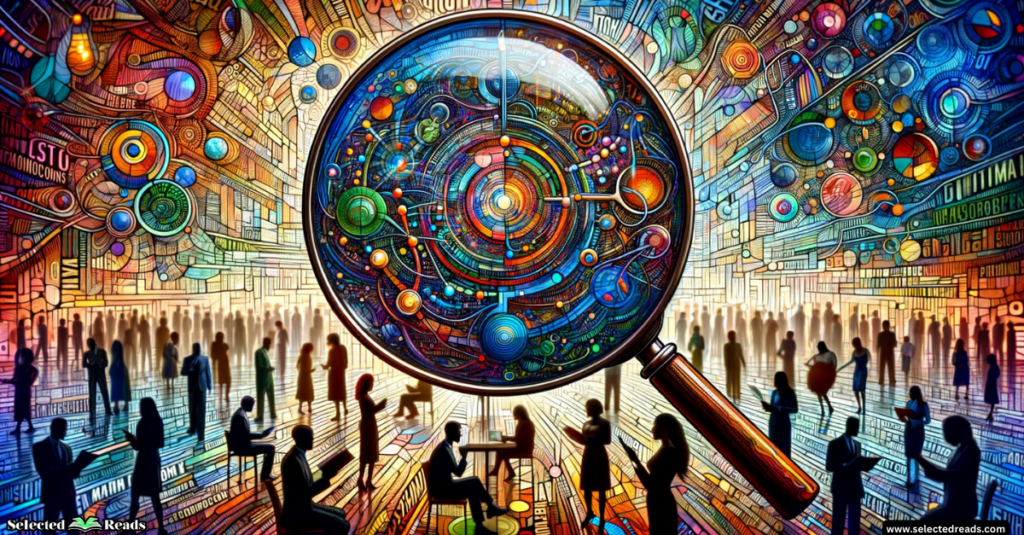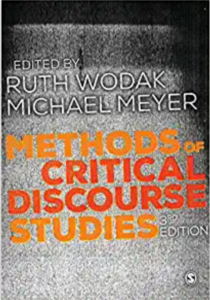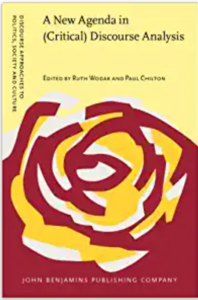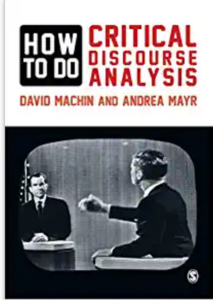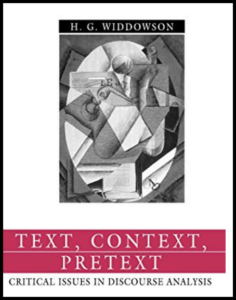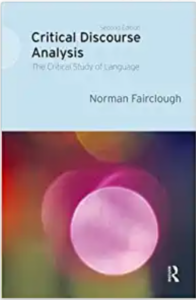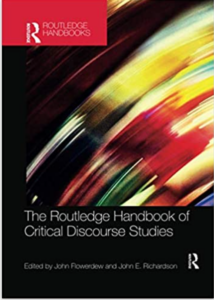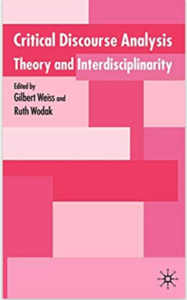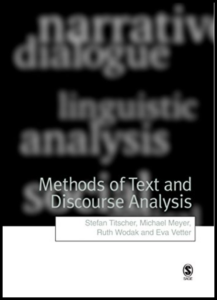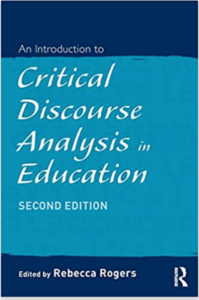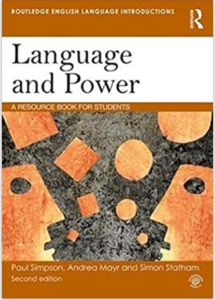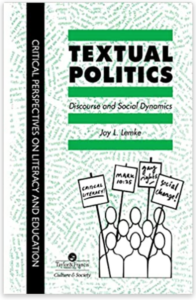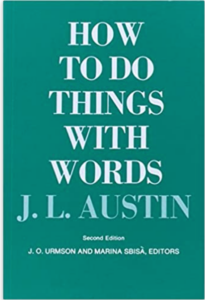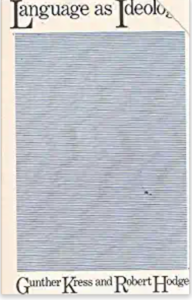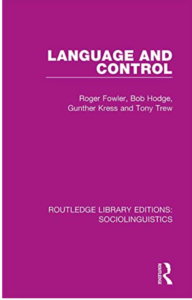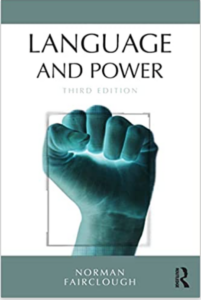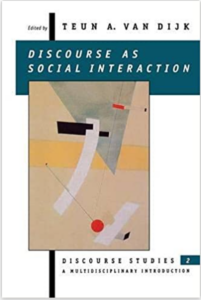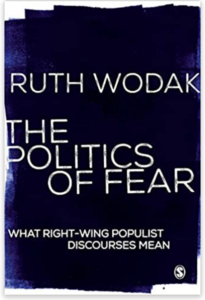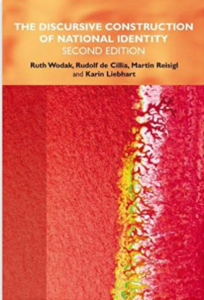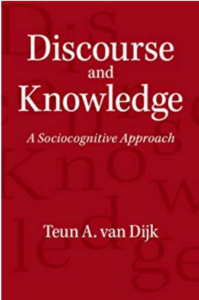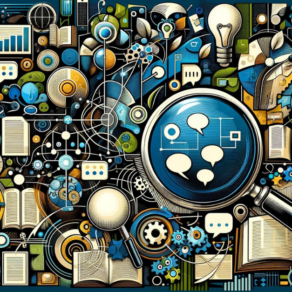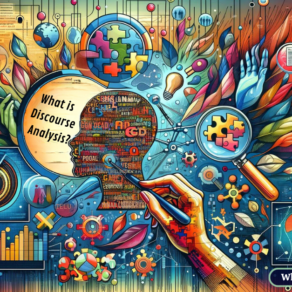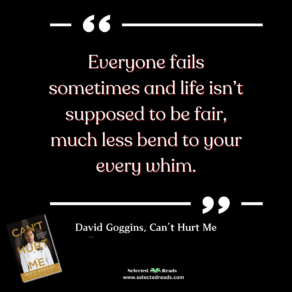Critical discourse analysis (CDA) is a linguistic approach that seeks to understand social phenomena through analysis of power and ideology. It focuses on the ways in which language is used to reproduce and reinforce social hierarchies and power imbalances. CDA aims to uncover hidden meanings in language, including exclusionary and discriminatory language.
CDA emerged in the 1970s and has since been used in various fields, including media studies, political science, and education. Its key principles include a focus on the relationship between language and power, an examination of both written and spoken discourse, and an awareness of the social and historical context in which discourse is produced.
CDA is interdisciplinary, drawing on theories from linguistics, sociology, and philosophy. It is often used to analyze political discourse, such as speeches and debates, as well as media representations of social groups.
Overall, CDA is an important tool for understanding the ways in which language shapes our understanding of the world and our place within it. By analyzing discourse through a critical lens, we can uncover hidden biases and challenge dominant power structures.
If you want to learn more about CDA, explore the theories underlying it, and understand the different analytic methods it draws on, the collection of books below is a good place to start with. These are sources I used in my doctoral research featuring seminal works of established scholars in the field. For those of you interested in learning about discourse analysis (DA) check out this short introduction to discourse analysis as well as this collection of discourse analysis books.
Critical Discourse Analysis Books
Here is a list of seminal books on critical discourse analysis
1. Methods of Critical Discourse Studies, by Ruth Wodak (Editor), Michael Meyer (Editor)
This book is a comprehensive introduction to Critical Discourse Analysis (CDA), offering an accessible and engaging overview of various topics. It combines international examples and an interdisciplinary approach, providing readers with a deep understanding of CDA’s nuances. The book covers the basics of analysis and includes examples from written texts, online data, and images, making it an invaluable resource for those new to or familiar with CDA
2. A New Agenda in (Critical) Discourse Analysis: Theory, methodology and interdisciplinarity, by Ruth Wodak (Editor), Paul Chilton (Editor)
This work is pivotal for anyone engaged in discourse analysis in social sciences. It critically reassesses CDA’s assumptions and methods while suggesting innovative directions for the field. The book features practical analyses of major discourse analysis issues, setting a new agenda and offering fresh perspectives for researchers and students alike.
3. How to Do Critical Discourse Analysis: A Multimodal Introduction, by David Machin, Andrea Mayr
This book serves as a practical guide to understanding how language, power, and ideology are interplayed in various forms of media. Covering a range of media texts, from magazines to YouTube videos, it offers a systematic toolkit for language and image analysis, drawing on discourse analysis, appraisal theory, stylistics, and conversation analysis.
4. Text, Context, Pretext: Critical Issues in Discourse Analysis, by H. G. Widdowson
Authored by a leading researcher, this book critically examines the relationships between grammar, text, and discourse. It challenges some of the overlooked aspects in critical discourse analysis, stimulating discussion on key issues and offering a critical perspective on discourse analysis practices.
5. Critical Discourse Analysis: The Critical Study of Language, by Norman Fairclough
Norman Fairclough, a prominent figure in CDA, presents a book that spans his 25 years of work in the field. It covers a wide range of topics including the methodology of CDA, analysis of political discourse, the role of discourse in globalization, and the interplay between language, ideology, and power. This book is essential reading for students and researchers in CDA.
6. The Routledge Handbook of Critical Discourse Studies, by John Flowerdew (Editor)
This handbook is a comprehensive overview of the evolving field of Critical Discourse Studies (CDS). Featuring contributions from leading scholars, it covers the core theories, methodologies, contexts, and applications of CDS. The book addresses various approaches and analytical methods, offering insights into the interdisciplinary nature and practical implications of CDS.
7. Critical Discourse Analysis: Theory and Disciplinarity, by G. Weiss (Editor), R. Wodak (Editor)
This book offers a compelling debate on the integration of critical theory within discourse analysis, emphasizing the need for Critical Discourse Analysis (CDA) to incorporate a wide range of theories and methodologies from the social sciences. It challenges and expands the boundaries of CDA, exploring its interdisciplinary nature and potential.
8. Methods of Text and Discourse Analysis: In Search of Meaning, by Stefan Titscher, Michael Meyer, Ruth Wodak, Eva Vetter
This book is an extensive compendium of linguistic and sociological approaches to text and discourse analysis, presenting a range of models including Grounded Theory, Content Analysis, Conversation Analysis, and Critical Discourse Analysis. It uniquely presents each approach in a standardized format, allowing for systematic comparisons and providing a comprehensive resource for evaluating analytical methods.
9. An Introduction to Critical Discourse Analysis in Education, by Rebecca Rogers (Editor)
This book invites readers to explore the theories and methods of major traditions in critical discourse studies, particularly within educational contexts. Through empirical work from leading scholars, it provides an overview and contextualizes Critical Discourse Analysis (CDA) in various learning environments, highlighting its significance in understanding and effecting social change in education.
10. Language and Power: A Resource Book for Students, by Paul Simpson, Andrea Mayr, Simon Statham
This book is an accessible and comprehensive resource for students, offering an overview of the relationship between language and power. It includes activities, study questions, analyses, and key readings. The book’s unique structure, divided into four sections—introduction, development, exploration, and extension—allows for an incremental and thorough understanding of the subject.
11. Textual Politics: Discourse And Social Dynamics, by Jay L. Lemke
This book delves into how meanings are constructed through language and symbols, examining the interplay between discourse and concepts of power and ideology. It addresses significant societal issues like class, gender, and identity, and the role of language in controversial topics, such as religious fundamentalism versus gay rights, and in policy debates, offering a critical perspective on the use of language in shaping social dynamics.
12. How to Do Things with Words, by J. L. Austin (Author), J. O. Urmson (Editor), Marina Sbisà (Editor)
This book is a collection of John Austin’s influential lectures on philosophy of language, particularly focusing on performative language and speech act theory. It discusses various concepts such as performatives, constatives, and the conditions for successful speech acts. Austin’s work is foundational but can be complex, requiring a solid background in linguistic theory.
13. Language as Ideology, by Gunther Kress (Author), Robert Hodge (Author)
Regarded as a seminal work in critical linguistics, this book extensively documents the intricate relationship between language and social practices. It provides a detailed theoretical account of how power and ideology operate through language. The latest edition includes a new chapter that updates the field’s advancements and reflects on the authors’ current positions with a detailed analysis of related texts.
14. Language and Control, by Roger Fowler (Author), Bob Hodge (Author), Gunther Kress (Author), Tony Trew (Author)
This book delves into the relationship between language, social practice, and control. It examines how language variations reflect and influence social relationships, focusing on how different groups use language to express and regulate social meanings. The book argues that language is not merely a stylistic marker of social differences but a tool for articulating and reinforcing social meanings and power dynamics.
15. Language and Power, by Norman Fairclough (Author)
Essential for anyone interested in Critical Discourse Analysis, this book focuses on the role of language in maintaining and changing power relations in society. Fairclough discusses methods for analyzing language that reveal these power processes and suggests ways people can become more aware of and resistant to them. The book is a foundational text for understanding how language contributes to social power dynamics.
16. Analysing Discourse: Textual Analysis, by Norman Fairclough (Author)
This book presents a social perspective on language analysis, drawing on theories from social thinkers like Bourdieu and Habermas. Fairclough uses real texts—from written documents to broadcast debates—to illustrate and investigate his approach. The book is student-friendly, with accessible summaries, example texts, and a glossary, making it ideal for those interested in a textual approach to discourse analysis.
17. Discourse as Social Interaction, by Teun A. van Dijk (Editor)
This comprehensive volume focuses on the interactional, social, political, and cultural functions of text and talk. It emphasizes that discourse is not just about form and meaning but also action, exploring how discourse shapes and is shaped by social identity and group membership, including gender, race, and ethnicity, and how these groups communicate both among themselves and with others.
18. The Politics of Fear: What Right-Wing Populist Discourses Mean, by Ruth Wodak (Author)
In this book, Wodak uses the discourse historical approach to analyze the rise of right-wing populism. She examines how these parties have moved from the political fringes to become influential mainstream actors, setting agendas and framing media debates. The book offers insights into the normalization of nationalistic, xenophobic, racist, and antisemitic rhetoric and its impact on societal divisions.
19. The Discursive Construction of National Identity, by Ruth Wodak (Author), Rudolf de Cillia (Author), Martin Reisigl (Author), Karin Liebhart (Author)
This book analyzes discourses of national identity, particularly focusing on Austria. Using a discourse-historical approach combined with political science perspectives, the authors examine transformations in the definition of national identities. This interdisciplinary approach provides insights into the construction and ongoing evolution of national identities.
20. Discourse and Knowledge: A Sociocognitive Approach, by Teun A. van Dijk (Author)
Van Dijk’s book introduces the socio-cognitive approach to critical discourse studies. It explores the relationship between discourse and knowledge, focusing on cognitive processes, social distribution, cultural differences, and the linguistic management of knowledge in communication and epistemic communities. This book is the first to adopt a multidisciplinary approach to examine the interplay between discourse and knowledge, making it a pioneering text in the field of epistemic discourse analysis.
Final thoughts
In conclusion, Critical Discourse Analysis offers a profound lens through which we can decode the complexities of language and its impact on society. The rich tapestry of works compiled here, each penned by renowned scholars in the field, serves not only as an academic resource but as a gateway to deeper understanding and critical thinking. These texts, fundamental to my own doctoral research, span a diverse range of perspectives and methodologies, making them invaluable for anyone seeking to delve into the intricacies of discourse analysis.
Whether you’re exploring CDA for scholarly purposes, professional development, or personal interest, these books provide a comprehensive foundation and advanced insights into the broad field of critical discourse studies.



